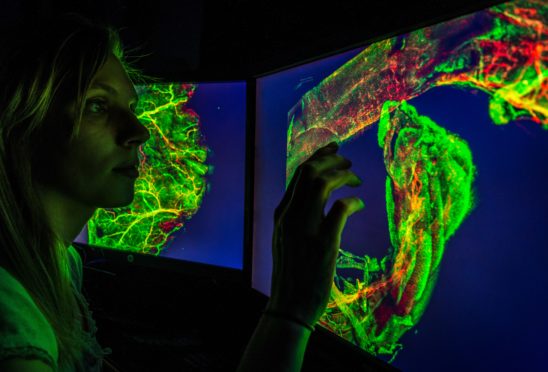Research from Dundee University features in a new exhibition at the National Museum of Scotland exploring the role of academics in the fight to eliminate tropical diseases by tackling the parasites that cause them.
Parasites: Battle for Survival examines five deadly diseases which together affect one in 18 people around the world and thrive in areas lacking access to clean water, healthcare and adequate sanitation.
Researchers from Dundee, Edinburgh and Glasgow are at the forefront of efforts to eliminate Malaria, Guinea worm disease, sleeping sickness, schistosomiasis and leishmaniasis.
All but malaria are classified as neglected by the World Health Organization, meaning historically they have seen a lack of interest and funding from healthcare groups and governments despite their significant impact.
Scottish scientists are collaborating with communities around the globe to understand, prevent and treat these diseases. If successful, it will be the first time a human disease has been eliminated since smallpox was wiped out in 1979.
Dundee University is a leading centre of research into neglected diseases, with work being carried out to better understand and develop new treatments for diseases including African sleeping sickness and visceral leishmaniasis.
In addition, researchers from its drug discovery unit were awarded Project of the Year by Medicines for Malaria Venture (MMV) for their discovery work on potential new drugs to treat the disease.
Dr Catharine Goddard, manager of Dundee’s Wellcome Centre for Anti-Infectives Research, said: “We are thrilled to have this opportunity to show people how Scotland’s scientific research community collaborates.
“By working together, we can find new treatments for neglected tropical diseases. The drug discovery unit in Dundee was borne out of scientists’ determination to ensure their research could lead to new medicines.
“We hope this exhibition will share our passion with the public and inspire the next generation of scientists to join us.”
Visitors to the exhibition will find out how diseases are transmitted and how parasites can adapt to fight back against modern medicine. They can explore the discovery of these diseases and get a taster of how a laboratory works.
They will then have the chance to put their new knowledge to the test by attempting to diagnose and treat a disease.
On display are objects from the lab and the field which are being used to combat these five diseases.
These include an ingenious small boat which has been specially designed to catch tsetse flies, which spread Sleeping Sickness in sub-Saharan Africa, and pipe filters which are used for drinking water.










